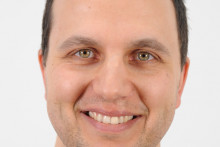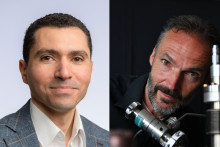The Assistant Professor in the Multiscale Mechanics group is the only scientist from the University of Twente to receive the NWO’s Vidi grant this year. He has been selected for his research project titled ‘Virtual Prototyping of Particulate Processes (ViPr) – Design and Optimisation via Multiscale Modelling and Rapid Prototyping’.
‘I work with systems that contain particles,’ Thomas Weinhart explains his research. ‘Particulate materials cover a large variety of materials, including pharmaceutical and food powders, industrial raw materials such as coal or ore, and many more. Such materials are very difficult to model because they can change rapidly from solid to fluid behaviour. I’m developing a technique that can model these particulate processes accurately and I aim to develop a software that does computational simulations based on these models. To do this efficiently, the material behavior has to be modelled on both micro- and macroscopic scale.’
This technique would have a broad scope of applications, from product development in the pharmaceutical, agri-food and high-tech industries to the prediction of natural hazards, such as avalanches and erosion. ‘There are countless possibilities, but in this research project I focus on industrial applications. In particular, additive manufacturing and wet granulation. It might also be applied to tableting presses in the pharmaceutical industry which turn granular materials into tablets. ’ clarifies Weinhart.
Aren’t industrial applications and prediction of avalanches two completely different areas? Not really, explains the scientist: ‘Avalanches are also made of particles: rocks, snow, etc. They can therefore also be modelled with the same techniques. Avalanches are very hard to model and predict, yet we need accurate predictions so we can prepare appropriate defenses.’
About Vidi
The Vidi grant is annually awarded by NWO (The Netherlands Organisation for Scientific Research). It is a grant for experienced researchers that enables them to develop their own innovative line of research and set up their own research group.
Vidi in the 2018 round:
- This year the grant was awarded to 86 researchers (52 men and 34 women).
- NWO received the total of 571 applications (from 352 men and 219 women).
- The total success rate is: 15%.







